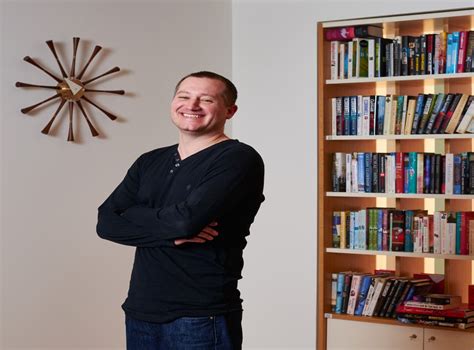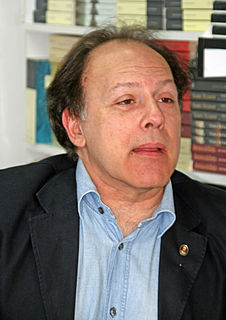A Quote by Hugh Hefner
I'm very comfortable with the nature of life and death, and that we come to an end. What's most difficult to imagine is that those dreams and early yearnings and desires of childhood and adolescence will also disappear. But who knows? Maybe you become part of the eternal whatever.
Related Quotes
Snowpiercer has both [optimistic and pessimistic]. It was essentially optimistic. The most pessimistic was my part, because of his knowledge. He knows how it started. The status quo, he knows, has to be maintained, otherwise there is no chance. He knows that this revolution is completely understandable and is also commendable. He also knows the negatives. In the end, that's not a very positive position to be in.
Being someone who had had a very difficult childhood, a very difficult adolescence - it had to do with not quite poverty, but close. It had to do with being brought up in a family where no one spoke English, no one could read or write English. It had to do with death and disease and lots of other things. I was a little prone to depression.
What was on the agenda was school and social life and those kinds of things. So I was the middle of five kids. So I had the great advantage of being able to play up to the older kids and play down to the younger kids and I think that's part of what propelled me to become a teacher at some point in my life. But it was a comfortable childhood. It was a privileged childhood.
You are loved. You are dear to your heavenly parents. The infinite and eternal Creator of light and life knows you! He is mindful of you. Yes, God loves you this very day and alwaysHe knows everything about you. He sees you clearly—He knows you as you really are. And He loves you—today and always!He loves you not only for who you are this very day but also for the person of glory and light you have the potential and the desire to become
We know that we need to explore desire in fiction - many say that the only way a story exists is that a character feels a strong desire - and nature is the place where creatures act on their desires in the most pure way imaginable, so maybe nature also works as a metaphor for whatever emotional troubles my characters have to negotiate. I'm interested in my characters as survivors, and maybe that works best when the old-fashioned notion of humans surviving in wilderness is not too far away.
I thought, "Well, I'm writing about early childhood, so maybe it would make sense to write about late childhood as well, early adulthood." Those were my thoughts, and this was how this crazy book [Winter Journal] was composed. I've never seen a book with pictures like at the end, pictures related to things you've read before.
Jesus offers himself as God's doorway into the life that is truly life. Confidence in him leads us today, as in other times, to become his apprentices in eternal living. "Those who come though me will be safe," he said. "They will go in and out and find all they need. I have come into their world that they may have life, and life to the fullest.
I'm slightly pessimistic about human nature, about how close it's possible to bond with those around you. Dying alone is a deep fear for most people. I'm not scared of death but I'm scared of dying scared. Maybe everything else in life comes from those two points: the separation anxiety of childhood and the ultimate fear of dying alone.
The human race will disappear. Other races will appear and disappear in turn. The sky will become icy and void, pierced by the feeble light of half-dead stars. Which will also disappear. Everything will disappear. And what human beings do is just as free of sense as the free motion of elementary particles. Good, evil, morality, feelings? Pure 'Victorian fictions'. Only egotism exists.
Life will be wonderful when men no longer fear dying. When the last superstitions are thrown out and we meet death with the same equanimity as life. No longer will children's minds be twisted by evil gods whose fantastic origin is in those barbaric tribes who feared death and lightning, who feared life. That's it: life is the villain to to those who preach reward in death, through grace and eternal bliss, or through dark revenge.
As soon as one knows one is going to die, childhood is over.... So one can be grown up at seven. Then, I believe most human beings forget what they have understood, recover another sort of childhood that can last all their lives. It is not a true childhood but a kind of forgetting. Desires and anxieties are there, preventing you from having access to the essential truth.
We all have to lead our own life, and we only have the one life, and the only people who can live life not according to their own desires are those who have no desires--which is the majority, actually. People can say what they like, they can speak of abnegation, sacrifice, generosity, acceptance, and resignation, but it's all false. The norm is for people to think that they desire whatever comes to them, whatever they achieve along the way or whatever is given to them--they have no preconceived desires.




































